Flanders-based artistic companies with foreign members.
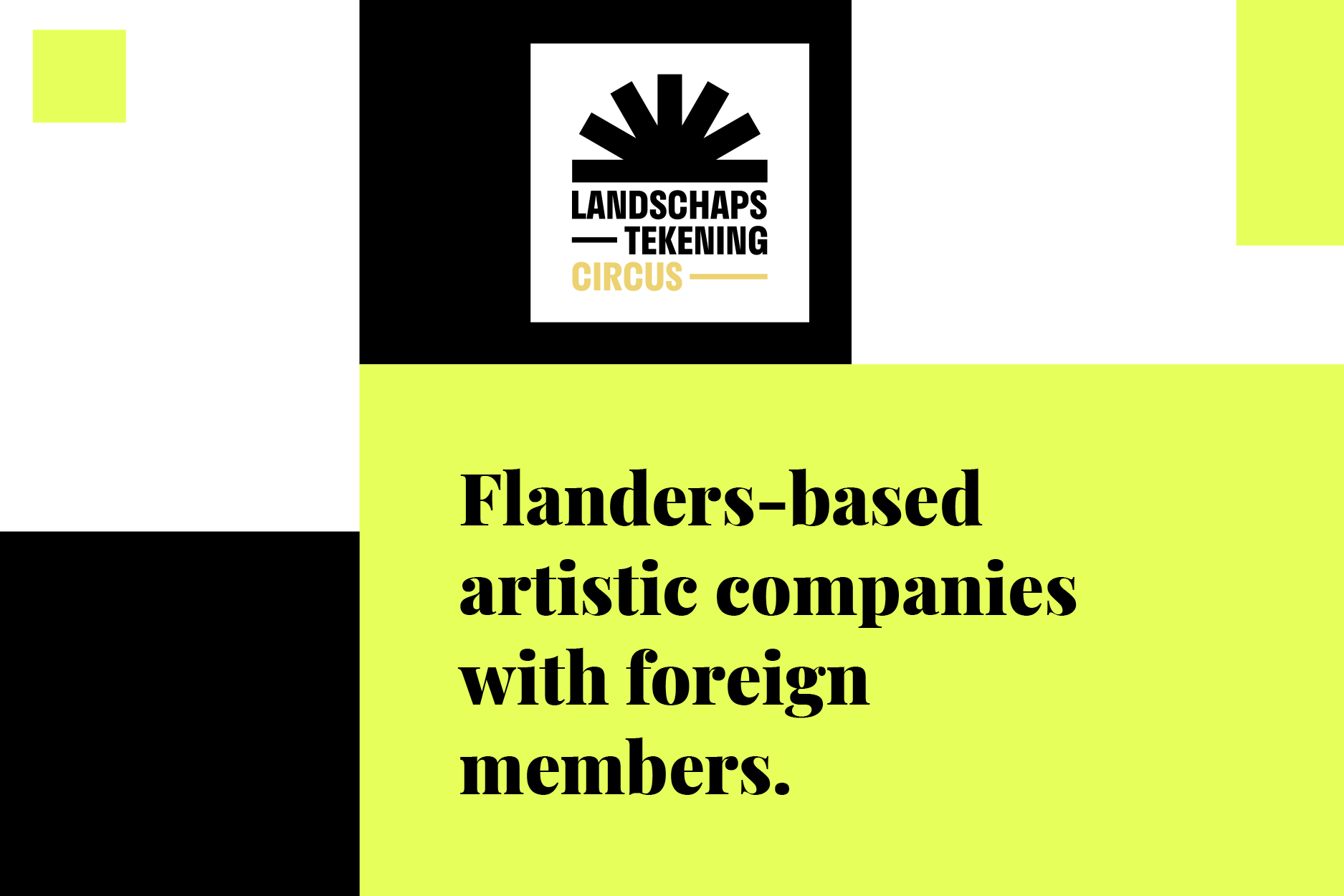
Opportunities and challenges of international collaborations
What does it mean to be a company based in Flanders from an internationalisation process point of view? What are the obstacles and opportunities for Flanders-based companies with international members? What are the differences or similarities between structures, working dynamics, opportunities and challenges? Three artistic companies answer questions around these themes, revealing more about their professional working conditions and structural choice to settle in the region.
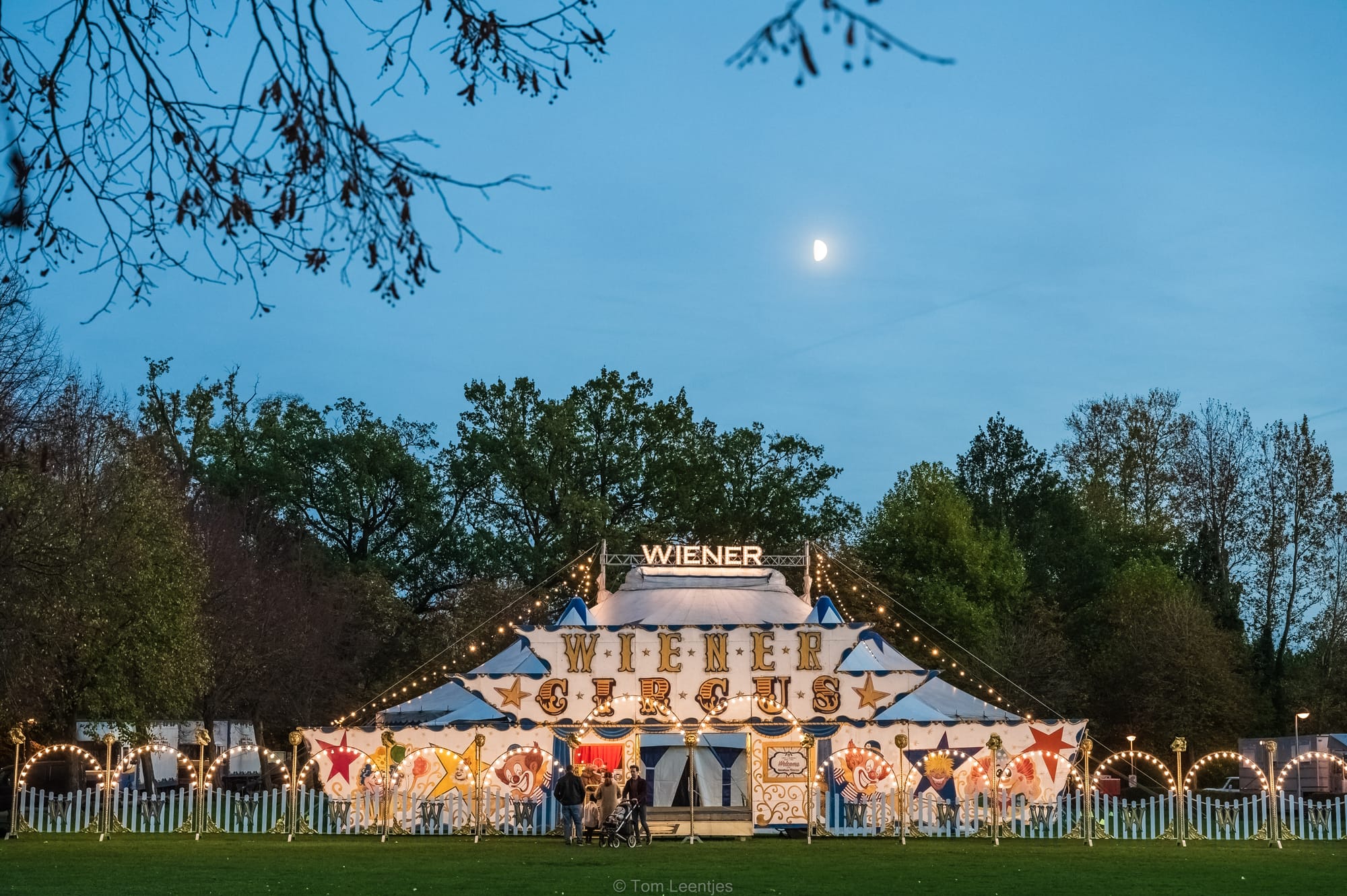
WIENER CIRCUS
Ricky Cannone, Director of Wiener Circus, explains the dynamics of a traditional circus based in Ghent. Ricky was born in Italy into a large Italian family of animal tamers. His father started working in Belgium in 1977, and he was taken in and raised close by the Malter family, whose company he took over in 2006. Already aware of the circus system and its independence from the institutions, he knew how to relate to municipalities and people. Wiener Circus now collaborates with the Ministry of Culture in Flanders to innovate and strengthen the connection to the traditional circus, even though the company is still independent of state support.
For his conception of a traditional circus, not using animals was a difficult transition point but it caused the company to rethink its relationship with audiences and towns.
"The problems we have with the municipalities stem from publicity. Paying to be visible is a difficult junction because the traditional circus bases its income on the commercial relationship with the public and less on public funding. We have raised the artistic quality and the comfort of the seats, noticing that nowadays the audience is more aware of circus and more diverse, not only families with children but people who want to experience an evening of entertainment."
Times are also changing in the use of language by international artists. In the 1980s, Russians, Poles, and Czechs spoke German, while Spanish and Portuguese or people from the southern Mediterranean spoke Italian, and now, almost all performers use English to communicate. He adds,
"In the traditional circus, the preference is to hire other families who already work together and understand the rules of travelling life. We live together for a year with the caravans, so the circus creates its community. As a director, I am responsible for the quality of life during the tour. Tolerance and inclusion are core values. It is not always easy, because you clash with other nationalities and cultural customs. For example, Muslims must be respected for their customs during Ramadan."
Wiener Circus owns an average circus tent suitable for up to 600 people. The Internet has facilitated the artist selection process, which now is via video. In April, the company starts looking for artists for the next season and in September starts thinking about the new cast.
The company has fixed dates in the Flanders region and casts international artists for its season. The selected artists are hired for the whole year to travel with the circus; the contract with the company is freelance and involves a monthly payment.
Travel, tent construction, and publicity are all fundamental aspects handled by Wiener Circus and its artists like any full-time job. For the future of his company, one aspect he hopes to improve is to make the travelling education dynamics of circus performers with children easier.
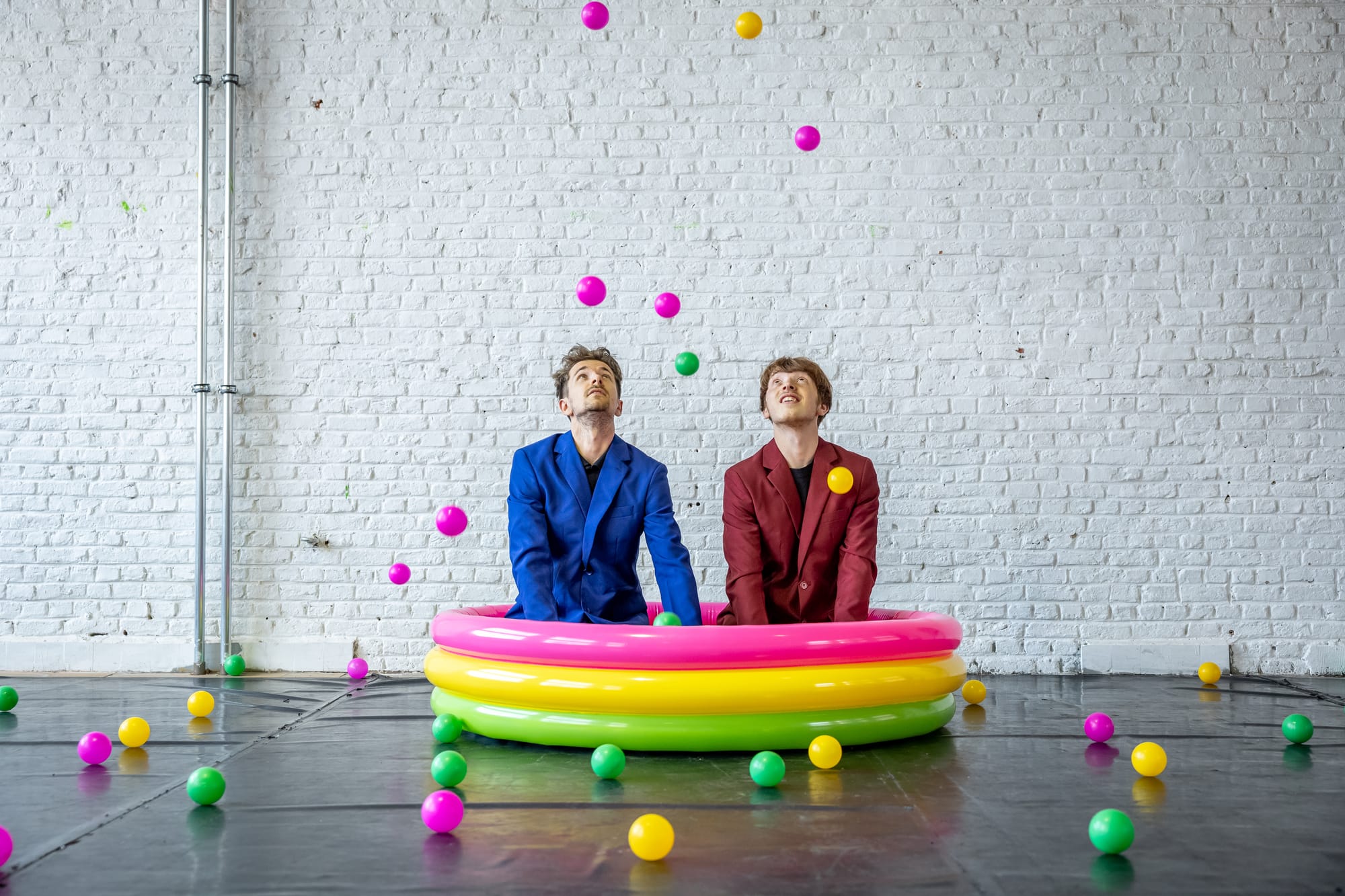
JAM SHENANIGANS
Jam Shenanigans are the artistic duo formed by Batist Van Baekel (2000, BE) and Henri Kangas (1998, FI). The company is a non-profit organisation based in Belgium since December 2022. The two met in Rotterdam - where they still live – while studying at Codarts. When they both finished school a year apart, Henri had to do civil service, and in the meantime, the decision to start a company together came right after. The duo wanted to pursue this idea, working on shows together and creating their own structure, so they did. Jam Shenanigans chose Belgium because of the high-quality standard of culture and the variety of opportunities already present in the circus sector. Batist recalls,
"The best benefit for us is purely in the number of opportunities in the scene, especially for the circus, but in culture, in general, there is a healthier level in Belgium during these times. We automatically felt it would be easier to be based here, where we have already developed connections. But this has developed over his years being there, seeing shows, and seeing people, and then making it our base, and we imagine that." Henri adds, "If we could only work in one place, we should work in Belgium, we focus on this one region, and that will be good."
The company consists of a General Board with other people from their families and one of their old teachers who helps to manage the legal structure; the General Board does not interfere in their artistic decisions but is periodically updated. Henri and Batist are the Daily Board; they do the day-to-day actions necessary to maintain the company and make decisions on production and promotional matters. Henri is self-employed in the Netherlands and invoices the company, and Batist does the same as an artist based in Belgium. They work with an accountant for the taxes and collaborate with two separate distributors, Koortzz and Je Buro, for their first and second shows respectively.
Jam Shenanigans is on tour with two shows, Shenanigans, an indoor performance that debuted September 2023, and is now creating an outdoor performance, Splash, which will premiere in May 2025. The distributors are not employed but work with a collaboration contract. In the future, the company might find a producer to delegate to, but for now, the duo is taking care of production internally. Working on two shows in two different circuits requires good coordination; one side of the company is busy upkeeping the production and taking care of sales, and the other is developing all the promo until the end of the creation.
The international countries they focus on performing the most are Belgium - where the company is based - the Netherlands – where they both went to school and live - and Finland, because of Henri, extending from their rooted connections the foreign possibilities. They perceive their international component as a great opportunity. They created touring possibilities in these countries through networking events, pitching, presenting and maintaining communications. A practical example is that their first show premiered in Helsinki, and they are still touring in Finland thanks to a pitch they did two years ago with their family show.
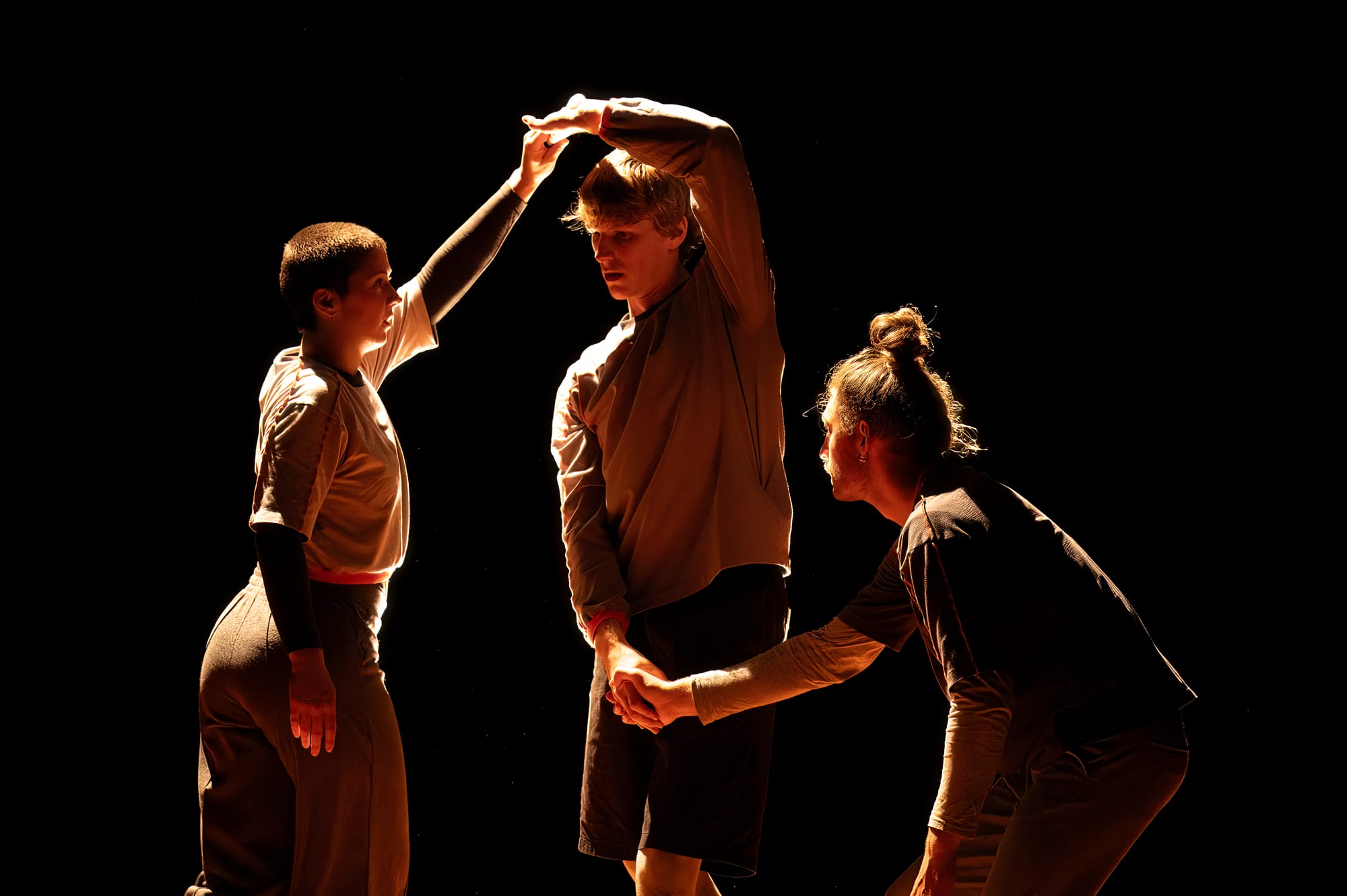
SINKING SIDEWAYS
Sinking Sideways is a dance acrobatics collective based in Flanders since 2020. The German Xenia Bannuscher and the Belgian Dries Vanwalle met during Codarts, while the Belgian Raff Pringuet joined the company one year later. We chat with the founders about their beginnings as young professionals in the sector.
Dries recalls that he and Xenia started attending shows together around 2016, sharing a similar attitude and taste in what they are interested in. As an artistic trio, they currently work with other collaborators, such as their Belgian technician Jef Delva, the French Gent-based distributor Anne-Agathe Prin, and the German Leoni Grützmacher, who is in charge of company administration and production from Berlin.
Their website still has a German domain because creating a virtual presence was necessary to be reachable, even before founding a legal company. However, settling the company in Flanders later has been a natural choice.
As Xenia explains, Germany is a big country, and the scene is still developing. They legally started the non-profit organisation during the pandemic. The structure allows them to be paid through the company and, in the case of Xenia, to maintain her German-based freelancer status.
As a duo without a legal structure, it took Dries and Xenia two years to receive the help of other collaborators on structural matters, and they took care of their artistic and management development by themselves. The administrative and contractual topics passed through language obstacles. In the case of the call for grants, Dries and Xenia collaborate in the writing, and sometimes, being the native speaker, Dries oversees translating the Flemish funding proposals.
Once settled as a company, they decided to pay the people touring together equally. However, as Belgian artists, two of them receive a monthly payment from the state. This aspect caused the company to develop their own system to manage the touring crew's finances.
Xenia stressed that sometimes different financial systems conflict and obstruct internationalisation, not only because they use their national language for their call for grants, but also because of the differences in contracts and payment methods.
"It is difficult to combine different economic systems. The natural international dimension of the circus sector often plays against the cooperation between countries to facilitate their exchange process. However, you start asking nation-based professionals to exchange information. How do we do that? Mh, I do not know, it is complicated."
The benefit of communicating through two countries allowed them to mix opportunities. As a Belgian company with a German member, in 2021, they participated in the first round of the German biannual development program Zirkus ON, receiving mentorship, residencies, and performing opportunities.
As focus countries, Sinking Sideways perform frequently in Belgium, France, the Netherlands and sometimes in Germany. Networking for them is using every little connection to build an international tour. Xenia points out that in their case, the niche vocation of the circus sector - which in Flanders is quite specific - combines with the vital necessity to visit other countries and mix the venues, opportunities, and genres of the performing arts places where they can perform, especially looking at the example of the dance scene established across countries.
As Xenia underlines, having a limited number of opportunities might be true from every single country's point of view. Cultivating variety and expanding touring possibilities in other nations might be a common goal shared with other circus companies, no matter where they are based.
Networking conditions, a high standard of cultural welfare, and more opportunities for the circus sector can be the three keywords to resume each of these Flemish stories. They have in common the fact that they are rooted in Flanders and yet decidedly international. From the past to the future, the circus language is international and bridge countries.
This article is published in Dutch as part of the special issue of Circusmagazine: Landschapstekening Circus by Circuscentrum.
